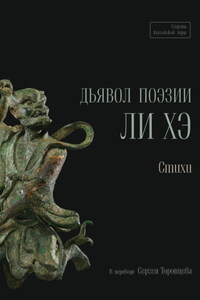A barbe de fol apprend-on à raire. On a fool’s beard the barber learns to shave.
A beau demandeur, beau refuseur. Handsomely asked, handsomely refused.
A beau jeu beau retour. One good turn deserves another.
A beau mentir qui vient de loin. He may lie boldly who comes from afar.
A bon appétit il ne faut point de sauce. Hunger is the best sauce.
A bon chat bon rat. To a good cat a good rat.
A bon cheval point d’éperon. Spur not a willing horse.
A bon chien il ne vient jamais un bon os. A good dog never gets a good bone.
Abondance de biens ne nuit pas. Store is no sore.
A bon entendeur demi-mot. A word to the wise.
A bon pêcheur échappe anguille. An eel escapes from a good fisherman.
A bon vin point d’enseigne. Good wine needs no sign.
A brebis tondue Dieu mesure le vent. God tempers the wind to the shorn lamb.
Absent le chat, les souris dansent. When the cat’s away the mice will play.
Absent n’est point sans coulpe ni présent sans excuse. Absent, none without blame; present, none without excuse.
A carême-prenant chacun a besoin de sa poële. At shrove-tide every one has need of his frying-pan.
A celui qui a son pâté au four on peut donner de son gâteau. To one who has a pie in the oven you may give a bit of your cake.
A chacun son fardeau pèse. Every one feels his own burden heavy.
A chair de loup sauce de chien. For wolf’s flesh dog sauce.
A chaque fou plaît sa marotte. Every fool likes his bauble.
A chaque jour suffit sa peine. Sufficient for the day is the evil thereof.
A chaque saint son cierge. To every saint his candle.
A chemin battu ne croît point d’herbe. No grass grows on a beaten road.
Acheter chat en poche. To buy a cat in a poke.
A cheval donné, il ne faut point regarder à la bouche. Look not a gift horse in the mouth.
A chose faite conseil pris. When a thing is done advice comes too late.
A confesseurs, médecins, avocats, la vérité ne cèle de ton cas. From confessors, doctors, and lawyers, do not conceal the truth of your case.
Adieu paniers, vendanges sont faites. Farewell baskets, the vintage is ended.
A dur âne dur aiguillon. For a stubborn ass a hard goad.
A femme avare galant escroc. A covetous woman deserves a swindling gallant.
A force de mal aller tout ira bien. By dint of going wrong all will come right.
A fripon fripon et demi. To a rogue a rogue and a half.
A goupil endormi rien ne lui chet en gueule.








